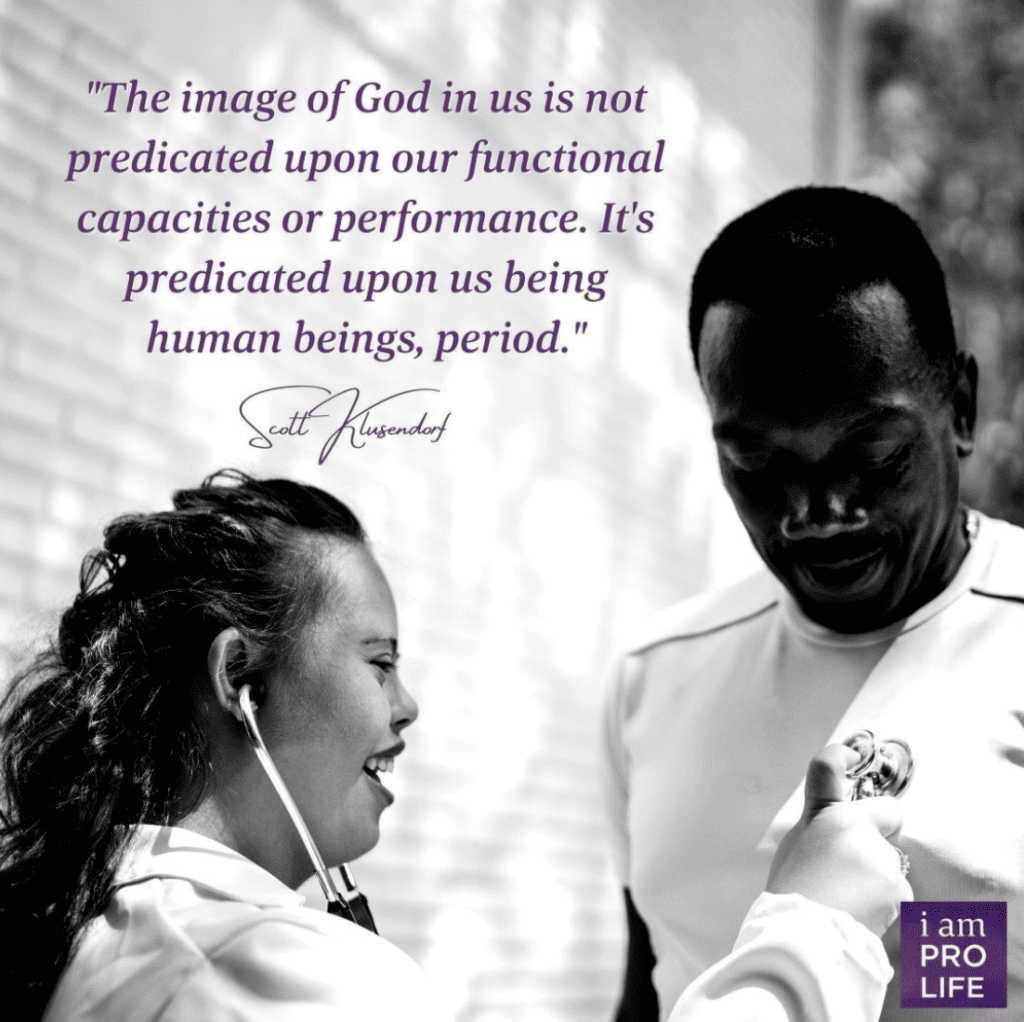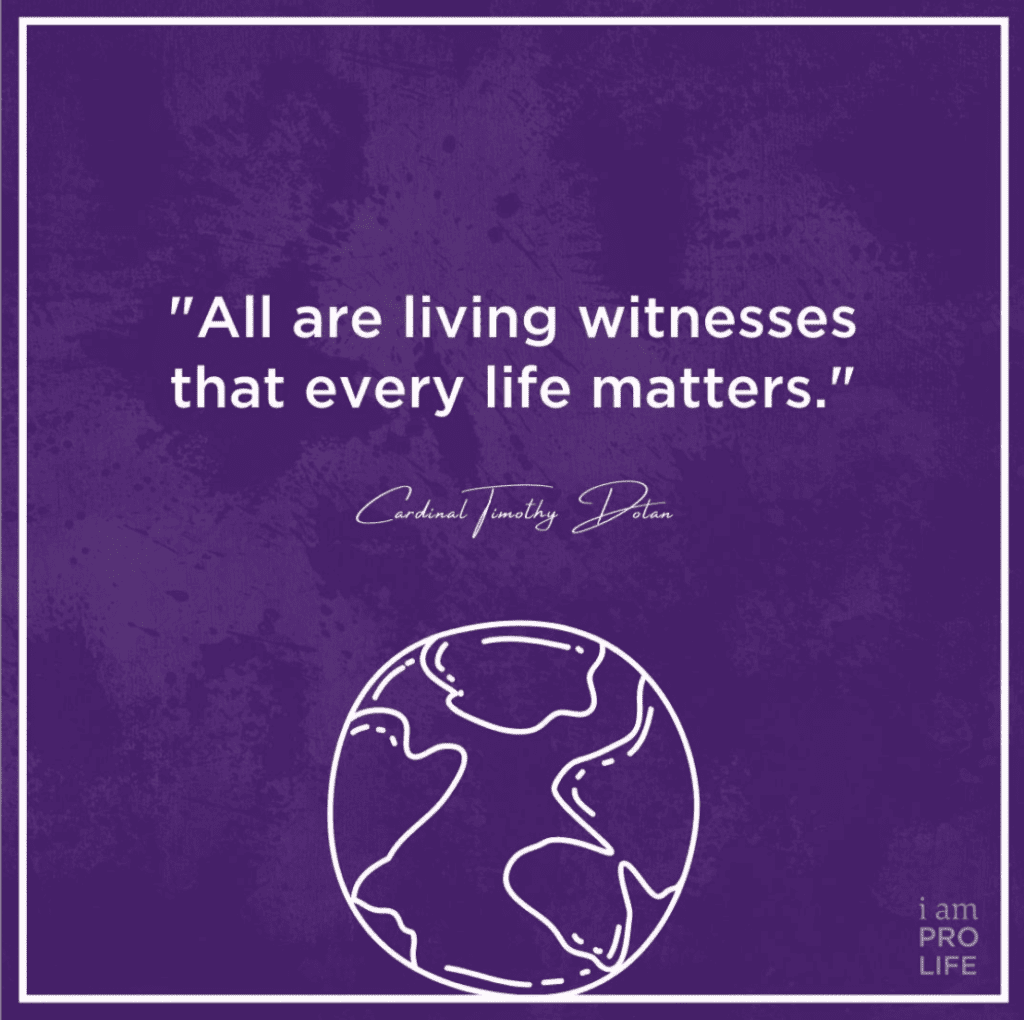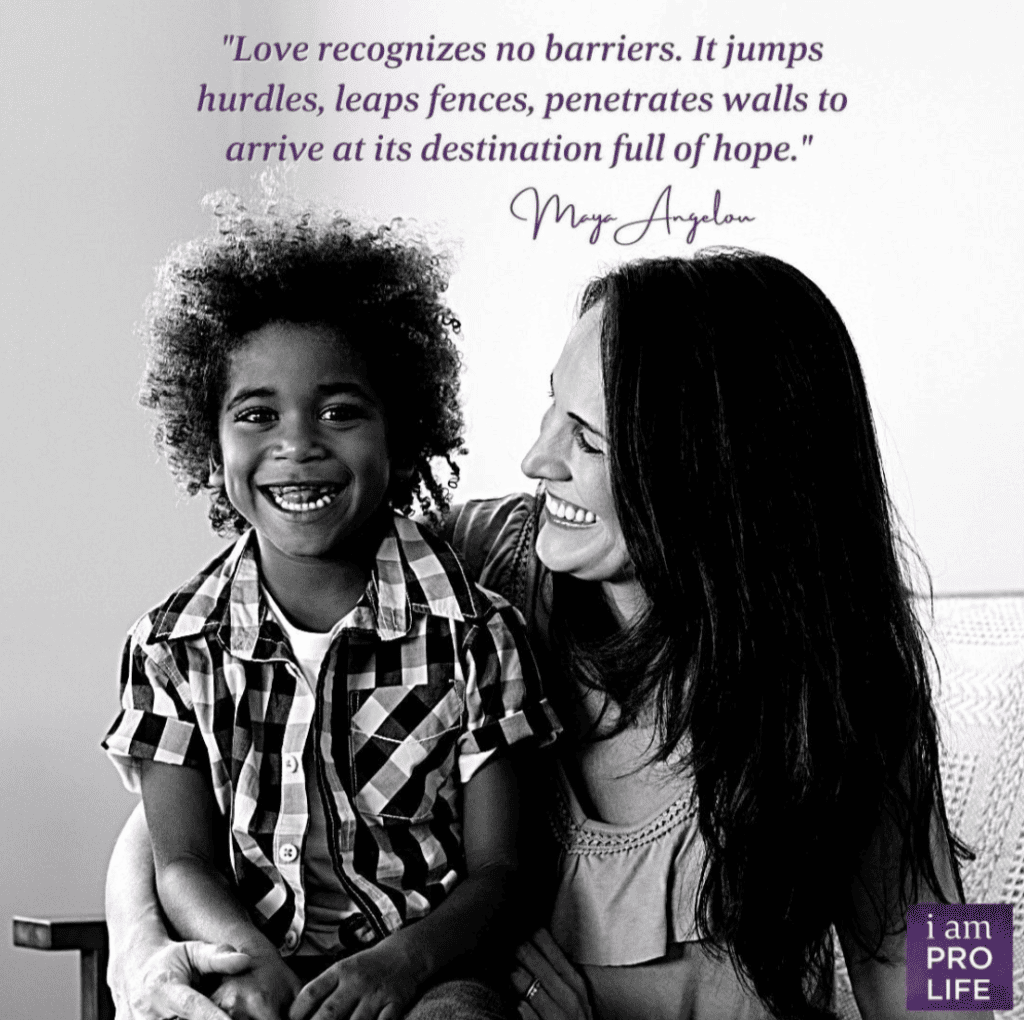Last year I wrote an article titled When Disabilities Are Not Welcome in Church. It shared what I believe to be the experience of the majority of people with disabilities and their families. However, I wanted to share that this does not have to be the case within your church. In this article, I hope to shine a light on some things that welcoming churches do to practice inclusion and why efforts like these make such a difference and impact.
When it comes to disability inclusion, most people want to love well but do not know what that looks like or where to start. I asked to hear the experiences of those in the disability community who have felt seen, loved and supported by their churches.
By far, the most common answer had to do with simple connection and belonging. “They see me, know my name and seek out my company. When interacting with my child, they treat them like one of their own.” It was the seemingly small things like making eye contact, smiling, starting a conversation.
These are the things that connect us. When done over time, these are the things that draw us past the discomfort of the new, unknown and awkward. They invite us into a place of knowing and belonging.

Something incredible happens in relationships. You cease seeing the individual for what they can do, and you start seeing the individual for who they are. Disabilities are a part of life on this Earth, and we shouldn’t ignore them. However, those with disabilities are no less created in the image of God. Each of them bears that image in a unique way that is worth knowing.
We must first ask ourselves: what is at the heart of our desire to be a more inclusive church? The churches that are doing things differently truly believe that those with disabilities have something of value to offer. When that is at the heart of your desire to be inclusive, then the changes needed to ensure inclusion will not feel like sacrifices. Just as we should give with a cheerful heart, our desire to love and serve those of all abilities should be with a joyful heart too.
Simply being asked the question of “How can we love and serve you/your family?” can mean the world to those who are constantly advocating for themselves and their loved ones. Sometimes we may not know how to answer that question. However, the fact that you took the time to ask it can go a long way in making us feel the tangible support and strength of Christ in our life.
“What is that like for you?” is also a really powerful question that helps with disability inclusion. What makes it difficult for you to attend church? Do you want your child to attend Sunday School/youth group? If so, how could we make that possible? How have you seen God working in your life lately? How can I pray for you? Unless you have walked in their shoes or by their side, there are so many things that people without disabilities would never give a second thought about. These can be hardships, but they can also be triumphs.
One of the greatest blessings of being a part of the disability community is the changed perspective that you gain. Often, people shy away from asking questions because they don’t want to draw attention to the differences. Sadly, this can be hurtful when what others view as differences we view as our reality.
As Christians, we are called to share our lives with each other. To share our burdens and also our joys. For many people with disabilities and their families, we desperately long for a safe environment where we can share our lives.

Questions allow for growth, learning and transformation. If you have very few or no people with disabilities attending your church, ask yourself why that is.
“Is my church accessible to those with disabilities?” This question includes everything from parking and ramps/elevators to seating and bathrooms. Are the needs of your diverse congregation met in a way that sends a message of dignity and love?
As a mother to children with disabilities and additional needs, I want you to know that I didn’t have all the answers. Nor do I today. However, because I love my children and want what’s best for them, I seek out answers. I try something, and if it doesn’t work, I try something else. This is just what we do for those we love.
If the church views those with disabilities as valued and necessary members, that will come through loud and clear. This works best when it starts in leadership, but any individual can create a ripple effect of change. For some churches, this may look like starting new ministries. For other churches, it doesn’t have to be that way.
Sometimes specific ministries can be fantastic. Even so, if we’re not careful, they can cause even more disunity. The goal should never be to separate those with disabilities but rather to foster an environment of unity and inclusion. This task isn’t easy. It requires time, money, and loss of comfort, but isn’t that what Jesus calls us to surrender to him daily?
In conclusion, I want to stress that every person with disabilities and their family are unique. The best way to love and serve them is to be intentional about getting to know them. I can’t speak for every family, but as a mom with two children who have disabilities, I know firsthand the desire to live in a community. All the same, I know the draw to isolate and live in our own little world.
The thing that has made all the difference for our family hasn’t been a well-organized ministry, but rather it’s been individual people in the body of Christ who have taken the time to include and get to know our family over time.

I do not believe there is an easy answer as to how the church can become more inclusive. There’s no specific ministry model that, if followed, will ensure those with disabilities and their families feel seen and loved. People often approach inclusion with the question of how can I make the church more comfortable for those with disabilities? Instead, we should ask, how can I step outside of my comfort zone and change my perspective? How can I experience the blessing of not just ministering to, but being ministered to by those with disabilities?
I truly believe that when the church welcomes those with disabilities, we will bear more fruit. Through what the world may see as a weakness, we will radiate the beautiful passion and strength of Christ’s love.
The post How to Practice Disability Inclusion in Your Church appeared first on Focus on the Family.
Continue reading...
When it comes to disability inclusion, most people want to love well but do not know what that looks like or where to start. I asked to hear the experiences of those in the disability community who have felt seen, loved and supported by their churches.
Know Our Names
By far, the most common answer had to do with simple connection and belonging. “They see me, know my name and seek out my company. When interacting with my child, they treat them like one of their own.” It was the seemingly small things like making eye contact, smiling, starting a conversation.
These are the things that connect us. When done over time, these are the things that draw us past the discomfort of the new, unknown and awkward. They invite us into a place of knowing and belonging.

Something incredible happens in relationships. You cease seeing the individual for what they can do, and you start seeing the individual for who they are. Disabilities are a part of life on this Earth, and we shouldn’t ignore them. However, those with disabilities are no less created in the image of God. Each of them bears that image in a unique way that is worth knowing.
More articles on Disability Inclusion:
- Appearances Don’t Matter: God’s Love for the Disabled
- The Value of Every Life
- Facing Ordinary Life with Extraordinary Kids
Ask Questions
We must first ask ourselves: what is at the heart of our desire to be a more inclusive church? The churches that are doing things differently truly believe that those with disabilities have something of value to offer. When that is at the heart of your desire to be inclusive, then the changes needed to ensure inclusion will not feel like sacrifices. Just as we should give with a cheerful heart, our desire to love and serve those of all abilities should be with a joyful heart too.
Simply being asked the question of “How can we love and serve you/your family?” can mean the world to those who are constantly advocating for themselves and their loved ones. Sometimes we may not know how to answer that question. However, the fact that you took the time to ask it can go a long way in making us feel the tangible support and strength of Christ in our life.
“What is that like for you?” is also a really powerful question that helps with disability inclusion. What makes it difficult for you to attend church? Do you want your child to attend Sunday School/youth group? If so, how could we make that possible? How have you seen God working in your life lately? How can I pray for you? Unless you have walked in their shoes or by their side, there are so many things that people without disabilities would never give a second thought about. These can be hardships, but they can also be triumphs.
Disability Inclusion Benefits the Church
One of the greatest blessings of being a part of the disability community is the changed perspective that you gain. Often, people shy away from asking questions because they don’t want to draw attention to the differences. Sadly, this can be hurtful when what others view as differences we view as our reality.
As Christians, we are called to share our lives with each other. To share our burdens and also our joys. For many people with disabilities and their families, we desperately long for a safe environment where we can share our lives.

Questions allow for growth, learning and transformation. If you have very few or no people with disabilities attending your church, ask yourself why that is.
“Is my church accessible to those with disabilities?” This question includes everything from parking and ramps/elevators to seating and bathrooms. Are the needs of your diverse congregation met in a way that sends a message of dignity and love?
Be Willing
As a mother to children with disabilities and additional needs, I want you to know that I didn’t have all the answers. Nor do I today. However, because I love my children and want what’s best for them, I seek out answers. I try something, and if it doesn’t work, I try something else. This is just what we do for those we love.
If the church views those with disabilities as valued and necessary members, that will come through loud and clear. This works best when it starts in leadership, but any individual can create a ripple effect of change. For some churches, this may look like starting new ministries. For other churches, it doesn’t have to be that way.
Sometimes specific ministries can be fantastic. Even so, if we’re not careful, they can cause even more disunity. The goal should never be to separate those with disabilities but rather to foster an environment of unity and inclusion. This task isn’t easy. It requires time, money, and loss of comfort, but isn’t that what Jesus calls us to surrender to him daily?
Inclusion Isn't Always Easy
In conclusion, I want to stress that every person with disabilities and their family are unique. The best way to love and serve them is to be intentional about getting to know them. I can’t speak for every family, but as a mom with two children who have disabilities, I know firsthand the desire to live in a community. All the same, I know the draw to isolate and live in our own little world.
The thing that has made all the difference for our family hasn’t been a well-organized ministry, but rather it’s been individual people in the body of Christ who have taken the time to include and get to know our family over time.

I do not believe there is an easy answer as to how the church can become more inclusive. There’s no specific ministry model that, if followed, will ensure those with disabilities and their families feel seen and loved. People often approach inclusion with the question of how can I make the church more comfortable for those with disabilities? Instead, we should ask, how can I step outside of my comfort zone and change my perspective? How can I experience the blessing of not just ministering to, but being ministered to by those with disabilities?
I truly believe that when the church welcomes those with disabilities, we will bear more fruit. Through what the world may see as a weakness, we will radiate the beautiful passion and strength of Christ’s love.
The post How to Practice Disability Inclusion in Your Church appeared first on Focus on the Family.
Continue reading...





